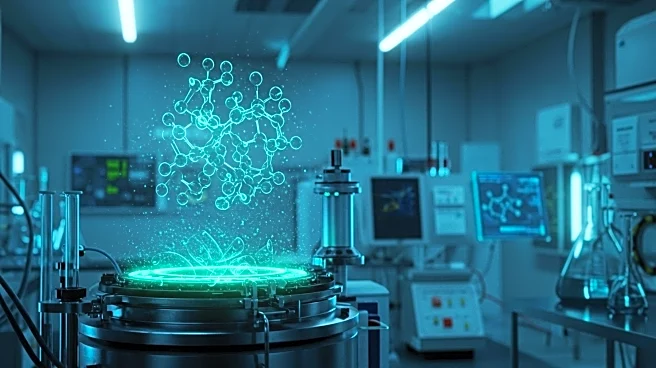What's Happening?
The global enzymes market is projected to grow significantly, reaching $20.4 billion by 2029, according to MarketsandMarkets. This growth is driven by advancements in biotechnology and personalized medicine, which are expanding the biopharmaceutical industry. Enzymes are crucial in biopharmaceutical manufacturing, aiding in processes such as protein expression, purification, and modification. They are also essential in producing biologics like monoclonal antibodies, vaccines, and gene therapies. The demand for treatments addressing chronic diseases and age-related conditions is increasing, further boosting enzyme utilization. Additionally, enzyme engineering advancements are leading to novel enzyme discoveries, enhancing safety and efficiency across various applications.
Why It's Important?
The expansion of the enzyme market is significant for several industries, particularly biopharmaceuticals, where enzymes play a vital role in drug development and production. As the demand for innovative treatments grows, enzymes will be central to addressing chronic and age-related diseases. Furthermore, enzymes contribute to sustainable practices, such as biofuel production and plastic recycling, reducing environmental impact. The Asia-Pacific region is emerging as a key growth hub, driven by expanding healthcare infrastructure and industrial production. This growth presents opportunities for companies involved in enzyme production and application, potentially leading to increased investments and technological advancements.
What's Next?
The enzyme market is expected to continue its growth trajectory, with ongoing research and development efforts aimed at enhancing enzyme stability, efficiency, and specificity. The Asia-Pacific region is likely to see increased investments in healthcare and industrial sectors, further driving enzyme demand. Companies in the enzyme industry may focus on expanding their presence in this region to capitalize on growth opportunities. Additionally, advancements in enzyme engineering and biotechnology will likely lead to new applications and innovations, supporting sustainable industrial practices and addressing environmental challenges.
Beyond the Headlines
The enzyme market's growth highlights the broader trend of integrating biotechnology into various industries, promoting sustainability and efficiency. Enzymes offer environmentally friendly alternatives to traditional chemical processes, supporting the transition to a circular bioeconomy. The collaboration between major enzyme companies, such as the merger of Novozymes and Chr. Hansen, indicates a strategic move to enhance bio solutions across industries. This trend underscores the importance of enzymes in driving innovation and addressing global challenges, such as climate change and resource depletion.









